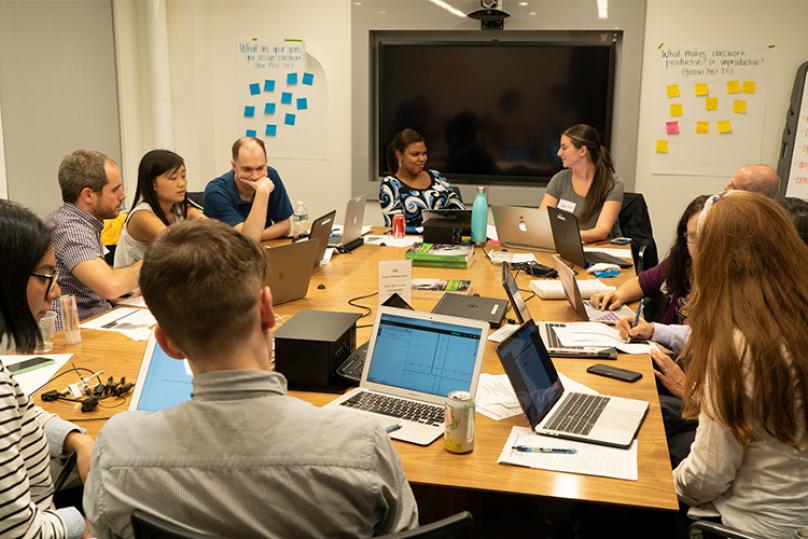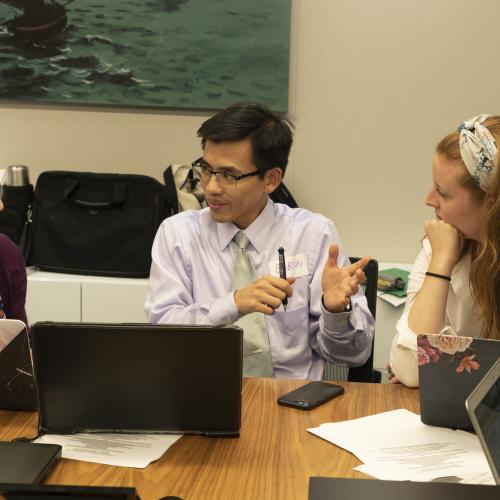
Because students often dismiss Algebra II content for sounding abstract or esoteric, mathematics teachers will search in vain for classwork that is simultaneously meaningful, engaging, and rigorous. In the “Productive Classwork in Algebra II: "Working Hard at Work Worth Doing” MƒA Professional Learning Team (PLT), a small group of MƒA math teachers met monthly throughout the fall and into the winter to collaboratively learn, investigate, and implement best practices related to this topic. The goal of this PLT was to revise teacher-contributed materials to better facilitate students' exploration and understanding of essential Algebra II concepts.
Having facilitated a similar PLT with Precalculus teachers, MƒA Master Teachers Lauren Friedman and Brooke Sossin wanted to continue the conversation in a different content area, keeping in mind the more specific standards corresponding to the Algebra II Regents. “We analyzed student misconceptions in order to parse the key ideas of a certain unit in Algebra II and focused on fostering authentic understanding during classwork – through appropriate discovery, scaffolding, and analysis,” said Brooke.
Lauren says that teaching this type of classwork has a huge payoff for teachers. “When your students are interested in the material, they can help drive the lesson and motivate fellow students. This type of classwork also keeps accelerated students on task, continuously pushing them to master higher order thinking questions while allowing teachers to help struggling students thrive.”
Both Brooke and Lauren feel fortunate to leverage a diverse group of teachers’ perspectives and materials with common, concrete goals. “Being around fellow MƒA teachers who are invested in the same outcome and product as you are is so refreshing and often unique to the MƒA PLT structure," said Lauren. "This type of course encapsulates the larger essence of our work in MƒA – building and sharing knowledge and forming deep professional bonds as a teacher community."
"This type of classwork also keeps accelerated students on task, continuously pushing them to master higher order thinking questions while allowing teachers to help struggling students thrive.”

